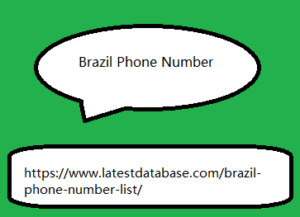Post by afifatabassum on Mar 11, 2024 8:06:08 GMT
Six months after the last update and a year after the first creation, I decided to check again the situation of social networks in the world. Facebook's march towards the conquest of new territories shows no signs of stopping (there are 111 out of 131 nations in which it is dominant). In recent months it has prevailed over local social networks that seemed difficult to bypass such as Friendster in the Philippines, Wretch in Taiwan, One in Lithuania or Hi5 in Portugal, Peru, Romania, Thailand.
It has taken Estonia and perhaps India from Brazil Phone Number Orkut (here the data is uncertain as Alexa sees Facebook in the lead, while Google Trends for Websites shows a neck to neck , with a slight prevalence of the Google social network. A look to the most searched words in that nation shows a very strong interest in Zuckerberg's creation, which could prevail in the coming months). The countries that resist are those of the former Soviet Union, fond of Odnoklassniki and V Kontakte, and in Europe Hungary, Poland and Holland. For some countries I also tried to analyze Facebook followers and discovered that, after a year, Twitter started to get the better of MySpace (in Australia and Canada) and Bebo (in the UK). In some cases, Linkedin also slowly appears in third place.

Zuckerberg just announced that he is starting to roll out new changes that will make privacy settings simpler and clearer. – control over status updates is simplified. You can choose between: everyone, friends, friends of friends or a particular contact (in practice the "friends and networks" option is removed). This setting is also applied to future products that will be launched. – the number of basic information visible to anyone is reduced and the possibility of deciding to whom to show the list of your friends and favorite pages with likes (so far public) is introduced. – control over the applications used and the sites accessed is simplified through the Facebook login. For example, it will be possible not to show which applications you are playing.
It has taken Estonia and perhaps India from Brazil Phone Number Orkut (here the data is uncertain as Alexa sees Facebook in the lead, while Google Trends for Websites shows a neck to neck , with a slight prevalence of the Google social network. A look to the most searched words in that nation shows a very strong interest in Zuckerberg's creation, which could prevail in the coming months). The countries that resist are those of the former Soviet Union, fond of Odnoklassniki and V Kontakte, and in Europe Hungary, Poland and Holland. For some countries I also tried to analyze Facebook followers and discovered that, after a year, Twitter started to get the better of MySpace (in Australia and Canada) and Bebo (in the UK). In some cases, Linkedin also slowly appears in third place.

Zuckerberg just announced that he is starting to roll out new changes that will make privacy settings simpler and clearer. – control over status updates is simplified. You can choose between: everyone, friends, friends of friends or a particular contact (in practice the "friends and networks" option is removed). This setting is also applied to future products that will be launched. – the number of basic information visible to anyone is reduced and the possibility of deciding to whom to show the list of your friends and favorite pages with likes (so far public) is introduced. – control over the applications used and the sites accessed is simplified through the Facebook login. For example, it will be possible not to show which applications you are playing.

